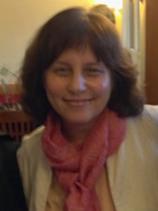The Fellowship: The Literary Lives of the Inklings: J.R.R. Tolkien, C. S. Lewis, Owen Barfield, Charles Williams
Review
The Fellowship: The Literary Lives of the Inklings: J.R.R. Tolkien, C. S. Lewis, Owen Barfield, Charles Williams
The group’s name, the Inklings, had at least two meanings: they would write, both academically and fancifully, hence they worked with ink, as writers did in those days; and each had an inkling of higher realities, mythic truths, and the love that conquers fear --- fear that some of them had experienced up close, in the gore and horror of a world war.
In this dense, fact-filled examination, editor Philip Zaleski and Professor Carol Zaleski have joined forces (as they did with PRAYER: A History) to bring the interwoven stories of four remarkable men to a new generation. The result is a tapestry both colorful and magical, as befits its heroes. Four men --- Charles Williams, Owen Barfield, C. S. Lewis and J.R.R. Tolkien --- met at Oxford and formed a club, gathering weekly from the early 1930s to 1949, most often at a local pub where they read their works to one another and diligently discussed life’s meaning, with no rules of order or membership rolls. Though there were other Inklings, these four were by far the most prominent. All were Christian, each in his own way, and all were brilliant intellectuals whose thought processes took them far outside the realm of the usual literature of the times. It was fantasy that united them, that “inkling” that everything from warfare to sexual attraction to the divine could be cloaked in symbols and given deeper meaning.
"In this dense, fact-filled examination, editor Philip Zaleski and Professor Carol Zaleski have joined forces...to bring the interwoven stories of four remarkable men to a new generation. The result is a tapestry both colorful and magical, as befits its heroes."
Williams was a novelist and poet, a chastely devout man with a somewhat tormented passion for pageantry and the occult, “a swirling mass of contradictions” whose writing caught the eye of C. S. Lewis and earned him a place with the Inklings. Barfield, battling a stutter that he attributed in part to his fear, as a teenager, of World War I, delved into the cult of Austrian philosopher/mystic Rudolf Steiner. But, as the authors put it, “There is only one Barfield from beginning to end: a man devoted to a single idea, the evolution of consciousness…”
Lewis, fantasy writer and Oxford don, famously abandoned Christianity in his teenage years, and his experiences of war cemented his atheism. But later, largely influenced by fellow Inklings, especially Williams, he became a convinced spokesperson for religion. Themes and characters in Lewis’ sci-fi Space Trilogy pay homage to Williams’ THE PLACE OF THE LION. Like Lewis, J.R.R. Tolkien, by far the best known among the Inklings today, had an early fascination for fantasy, mythology and the mysteries of language. “Language for Tolkien was…the soil from which his literary garden grew.” In inventing his own languages (early ones included Nevbosh and Naffarin), he learned that “the making of a language necessitates the making of a mythology in which that language was spoken.” From those youthful efforts were born the Elves, the Hobbits, and ultimately, The Lord of the Rings.
With lives that spanned the late 19th and almost the whole of the 20th centuries, the four Inklings attracted acclaim but “never achieved the formal brilliance of the greatest of their contemporaries, such as Joyce, Woolf, Nabakov, Borges or Eliot.” This, in part, can be traced to the fervent Christian principles that separated them from the trendsetters of the era, and partly because, as the Zaleskis sagely propose, they were, “one and all, guilty of the heresy of the Happy Ending.”
Reviewed by Barbara Bamberger Scott on June 12, 2015
The Fellowship: The Literary Lives of the Inklings: J.R.R. Tolkien, C. S. Lewis, Owen Barfield, Charles Williams
- Publication Date: June 7, 2016
- Genres: Biography, Nonfiction
- Paperback: 656 pages
- Publisher: Farrar, Straus and Giroux
- ISBN-10: 0374536252
- ISBN-13: 9780374536251






